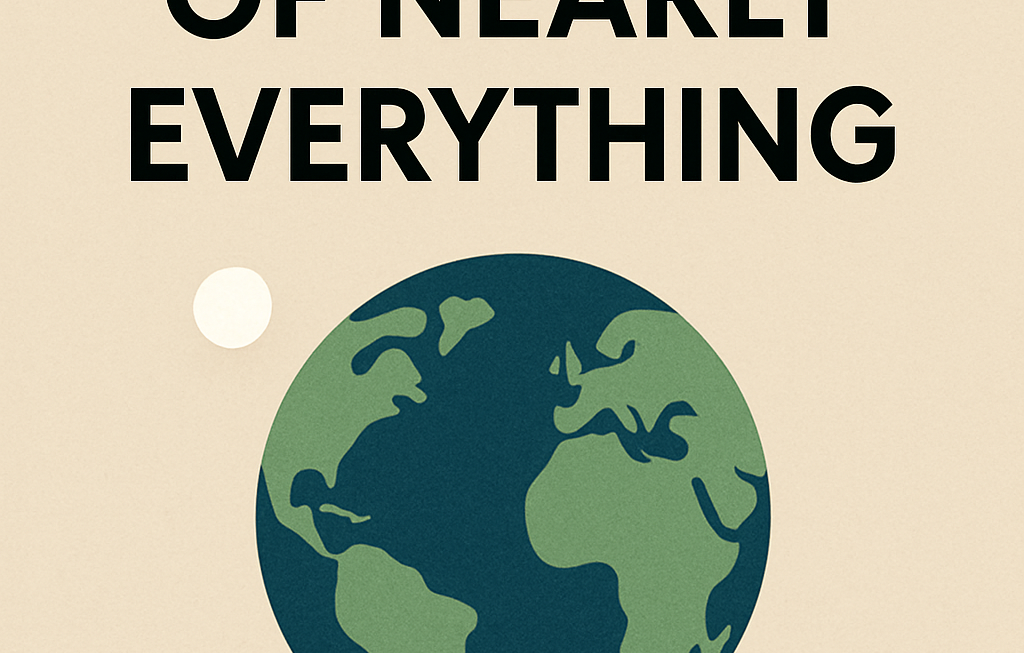A Conversation with the Universe: Bill Bryson on “A Short History of Nearly Everything”
Bill Bryson, the Iowa-born wordsmith who charmed his way into our collective consciousness with tales of Appalachian trails and British pubs, achieved a different kind of summit with his 2003 masterpiece, A Short History of Nearly Everything. This wasn’t a whimsical ramble, but a daring expedition into the heart of scientific understanding. Bryson, armed with his characteristic wit and an insatiable curiosity, tackled the Big Bang, the intricacies of the atom, and the relentless march of evolution, transforming daunting scientific concepts into an engaging narrative accessible to everyone. He wasn’t just reporting on scientific discovery; he was narrating the human endeavor to comprehend our place in the universe, celebrating the eccentricities and brilliance of those who dedicated their lives to unraveling its mysteries. The result was a critical triumph, a testament to Bryson’s ability to synthesize vast amounts of information with clarity and humor, bridging the gap between complex scientific theories and the everyday reader. This achievement cemented Bryson’s status not just as a celebrated travel writer, but as a compelling science communicator capable of making the most challenging subjects engaging and accessible. His achievement lies not just in explaining science, but in awakening a sense of wonder and inspiring a deeper appreciation for the quest for knowledge itself.
Ten Questions for Bill Bryson
- Question: Your book is praised for its accessibility, yet it tackles incredibly complex topics. Did you ever fear losing the reader in the intricacies of, say, quantum physics?
- Answer: I did worry about that, of course. The risk was always there. But I felt that if I could keep myself interested, and if I made sure to explain things as simply as possible, hopefully the reader would follow along. I tried to focus on telling a story – the story of science, of humanity’s insatiable curiosity. If I could make the journey compelling, I hoped the complexity would be less of an obstacle.
- Question: Many scientists criticized popular science for simplification. How did you navigate the line between accuracy and accessibility?
- Answer: It’s a tightrope walk, for sure. I believe strongly in accuracy – that’s non-negotiable. But I also felt that to make science truly accessible, a degree of simplification was essential. I tried to be meticulous in my research, checking and double-checking everything, but my goal was to present the essence of a complex idea, not necessarily every single detail. I aimed for clarity, not just comprehensiveness.
- Question: Your style is distinctly conversational. Was this a conscious choice, or did it simply emerge organically?
- Answer: It was definitely a conscious choice. I wanted the reader to feel like they were sitting with me, chatting about these extraordinary things. I believe that a conversational style helps readers to engage with the material on a more personal level, to feel more invested in the stories being told, to be less intimidated by the complexity.
- Question: The book highlights the contributions of numerous scientists, many less famous than others. What guided your selection process?
- Answer: I was fascinated by the personalities as much as the science itself. I wanted to showcase the human element—the struggles, the triumphs, the occasional downright oddities—of scientific discovery. Some of the lesser-known figures had extraordinary stories that deserved to be told, stories that illustrated the broader spirit of scientific inquiry.
- Question: Did researching this book change your understanding of the universe, and if so, how?
- Answer: Absolutely. Writing the book was a profound experience. It expanded my understanding of the universe exponentially and reinforced my appreciation for the sheer scale and complexity of it all. It instilled a deeper awe, and frankly, a sense of humility, in the face of the vastness of what we don’t know.
- Question: The book is imbued with a sense of wonder. Was this a deliberate attempt to evoke a specific feeling in the reader?
- Answer: Yes, absolutely. I wanted the reader to experience the sheer wonder of scientific discovery, the same sense of childlike amazement that often drives scientists in their work. It’s a feeling that we can all tap into and that can enrich our understanding of the world.
- Question: Many popular science books focus on the latest breakthroughs. Why did you choose a historical approach?
- Answer: The history of science is, in many ways, more dramatic than the current state of science. The evolution of scientific thought, the gradual accumulation of knowledge, the struggles and breakthroughs – those stories provide a powerful framework for understanding how we arrived at our current understanding of the world. By showing the process, I hoped to make the present more comprehensible.
- Question: Did you face any significant challenges in writing this book, beyond the obvious complexities of the subject matter?
- Answer: The sheer scale of the undertaking was daunting. I had to condense centuries of scientific progress into a single volume. Keeping the narrative flowing, while ensuring accuracy, was a significant challenge. And I had to constantly wrestle with making complex scientific ideas accessible and engaging for a general readership, which required significant effort and careful editing.
- Question: Looking back, what is your greatest satisfaction regarding the reception of “A Short History of Nearly Everything”?
- Answer: The most satisfying aspect has been witnessing the book’s impact on readers. I’ve heard from countless people who were inspired to delve deeper into science or who simply found a renewed sense of wonder in the world around them. That’s far more rewarding than any critical acclaim.
- Question: If you could add a chapter to the book now, what would it be about?
- Answer: That’s a great question. Given the rapid advances in areas like genomics and cosmology, a chapter updating our knowledge of the human genome, alongside the latest findings on the nature of dark matter and dark energy, would feel entirely appropriate. There is always something more to add in the ongoing tale of humanity’s exploration of the universe.



